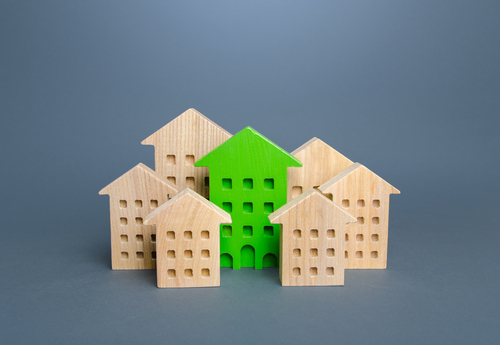The U.S. Department of Energy (DOE) announced $90 million in competitive awards to help states, cities, tribes, and partnering organizations implement updated energy codes for buildings. Funded by the Bipartisan Infrastructure Law, these awards will support 27 projects across 26 states and the District of Columbia to ensure buildings meet the latest standards for energy efficiency—reducing greenhouse gas emissions and lowering energy bills for American families and businesses.

Today, America’s 130 million commercial and residential buildings are responsible for 35% of the nation’s total carbon emissions. Energy codes establish minimum standards for energy efficiency in new and renovated buildings and help ensure they are healthier, safer, and more resilient to extreme weather events. Through 2040, building energy codes are estimated to save Americans $138 billion on their utility bills and reduce 900 million metric tons of CO2 emissions—an amount roughly equivalent to the combined annual emissions of 108 million homes.
To realize these cost-saving and public health benefits, it is critical that states and local governments update their building codes based on the latest technologies and construction practices and support their successful application. However, two out of every three communities in the U.S. have not adopted the latest building codes, in part due to a lack of available resources to support their implementation. These new awards seek to address this challenge.
Projects
This announcement builds on the Biden administration’s National Initiative to Advance Building Codes, and the 27 awarded projects were chosen following a robust stakeholder engagement process. Selected projects include:
- American Council for an Energy-Efficient Economy (Washington, D.C.) will establish a National Energy Codes Collaborative, which is a nationwide capacity-building network that empower states and jurisdictions to effectively and sustainably implement updated cost-effective building energy codes through technical assistance, community engagement, focused local strategy development, and peer-to-peer collaboration and convenings. (Award amount: $9.6 million)
- ClearlyEnergy, Inc. (Severna Park, Md.) will create regional building performance standard cohorts to implement building energy efficiency programs at a regional level in small, rural, and Justice40 communities, which offer opportunities to standardize policy models among adjacent jurisdictions and promote their consistency. (Award amount: $2.9 million)
- Massachusetts Department of Energy Resources (Boston, Mass.) will develop a comprehensive plan to support the adoption, implementation, and compliance of updated Stretch building energy code and Specialized code throughout the state. (Award amount: $3.9 million)
- Metropolitan Energy Center (Kansas City, Mo.) will leverage its extensive multi-state network of 30 regional, state, and local community partners not typically engaged in energy code efforts to conduct outreach and workforce development in rural and disadvantaged communities. (Award amount: $6.8 million)
- Pennsylvania Department of Environmental Protection (Harrisburg, Pa.) will develop energy code technical trainings and building science training programs at career and technical high schools, as well as community colleges, across Pennsylvania to provide students with opportunities to be trained in building science topics and help address the building code and trades employment gaps. (Award amount: $3 million)
- Southeast Energy Efficiency Alliance (Atlanta, Ga.) will develop and deliver accessible and replicable energy code resources, technical assistance, training, and workforce development strategies to stakeholders in Louisiana to increase the state industry’s knowledge and expertise in response to their recent energy code update. (Award amount: $1.6 million)
Additional award highlights include projects in Alaska where local communities and tribes will work together in energy code implementation; workforce development in Kansas and Missouri that include union partners to brings energy codes to rural communities; partnerships with unions and community groups in Massachusetts to bring energy codes to environmental justice communities; workforce development in Ohio and southeastern states with a focus on training on Building Performance Standards for retrofits; and municipal, contractor and union partnerships in Wisconsin to bring energy codes to more municipalities.
For a full list of projects, click here.
